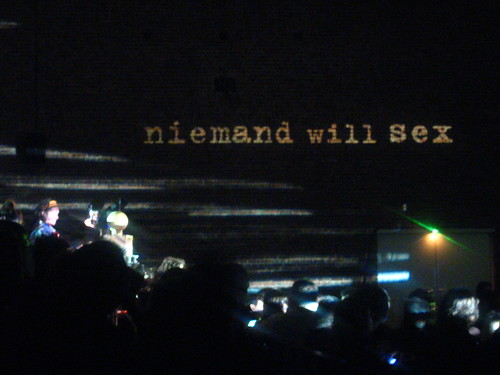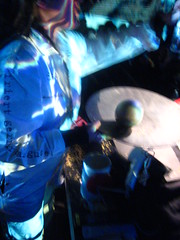10 laws:
REDUCE ORGANIZE TIME LEARN DIFFERENCES
CONTEXT EMOTION TRUST FAILURE THEONE
John Maeda talked yesterday night at the Mediateca Santa Teresa in Milan, in a open conference organized by MGM digital communication for his series of meeting Meet the Media Guru.
As John Maeda started to talk he said that he considered himself a mediaguy rather than a mediaguru, and i felt myself immediately better. “The computer is nothing more than a pencil” said April Greinman 20 years ago, and Maeda said that if it’s a pencil, it’s one that broke his tip continously, again and again.
What is semplicity about? semplicity=simplistic? =trend? =more sales? =?
it’s a question with no answer….and we’re at the beginning. So he started to present to the audience how easy it’s possbile to see semplicity and beauty into everyday life, showing photos he did from the complexity of the Dome of Milan to the simplicity of a dead white butterfly on a black asphalt: “the world is a great museum to visit“, you’ve just to open your eyes.
“Capitalism utilize the machine not to further social welfare, but to increase private profit.” Lewis Mumford, Technics and Civilization, 1934
Design is about merging human sensibility and technological aspects, and the human desires are mutable, sometime you want more, sometime less, usually if it’s about pleasure you want more, if about work less.
He started then to present more deeply the book he just edited for MIT Press, called The Laws of Simplicity. And he said since the beginning he wont show all the principles, he did the book for the pourpose and there everything is clearly explained, so read it!!!
Then a quick talk about four laws, about this part was particularly interesting the “SHE’s alwasy right” paradigm, that present a metodology that is always good for design: Shrink, Hide, Embody. Some clear example of this attitude are the evolution of the interface of the I-pod and the shell phone design. So at the fourth law, Learn, he stopped talking about the laws of simplicity and it started the best part of the conference with Maeda seriously telling to the audience how important is to look with a curious eye to the world and to spend time in relational activities: “Friends are forever, spend life making friends, not money”.
At the beginning of the conference he clearly said he thought about 10 laws, but they can be 3, 2 or more, he don’t knows what can happen, but that are his laws about complexity for now and at the end he said what i think are the real laws of Maeda’s way of life:
“To live is learn to forget”
“Everything is already there, so don’t think too much, but keep on doing”
“Look for things that gives you hope, life is great”
then the questions, sincerely not so interesting but among them turned out this:
Q: Artists that inspired you?
A: Duchamp, Bruno Munari and Italo Calvino.
Q: is it really important to learn programming to make design today?
A: Programming is quite boring. 5 years ago i would said yes, now… i don’t know.
Programming is sharp, but life is about emotion, so i hope in the future programming can be softer.
Q: How do you see ther future?
A: I don’t the future i see, i can say the future i want: a future as a friendly place.
and i started clapping my hands….
http://lawsofsimplicity.com




Socialize